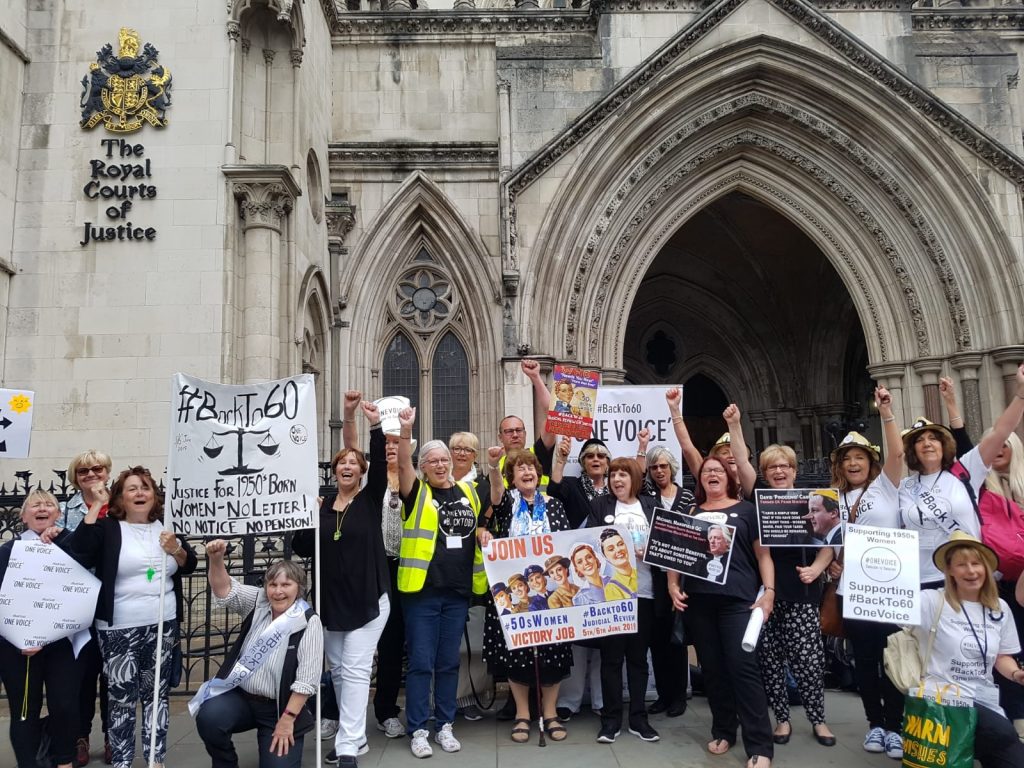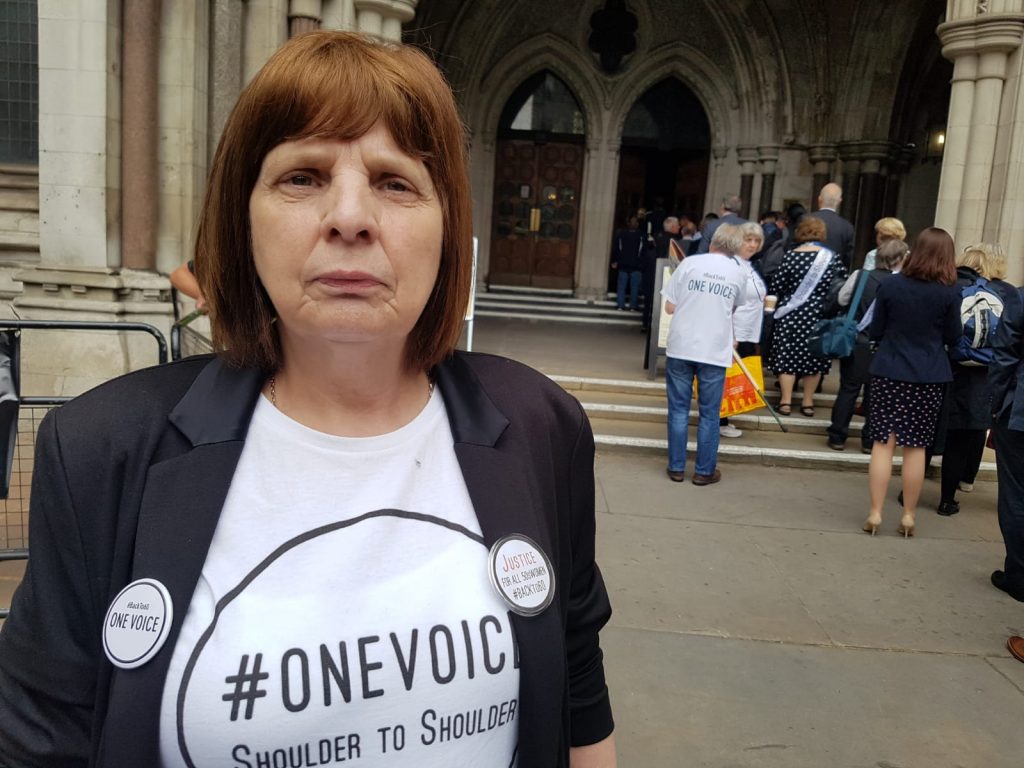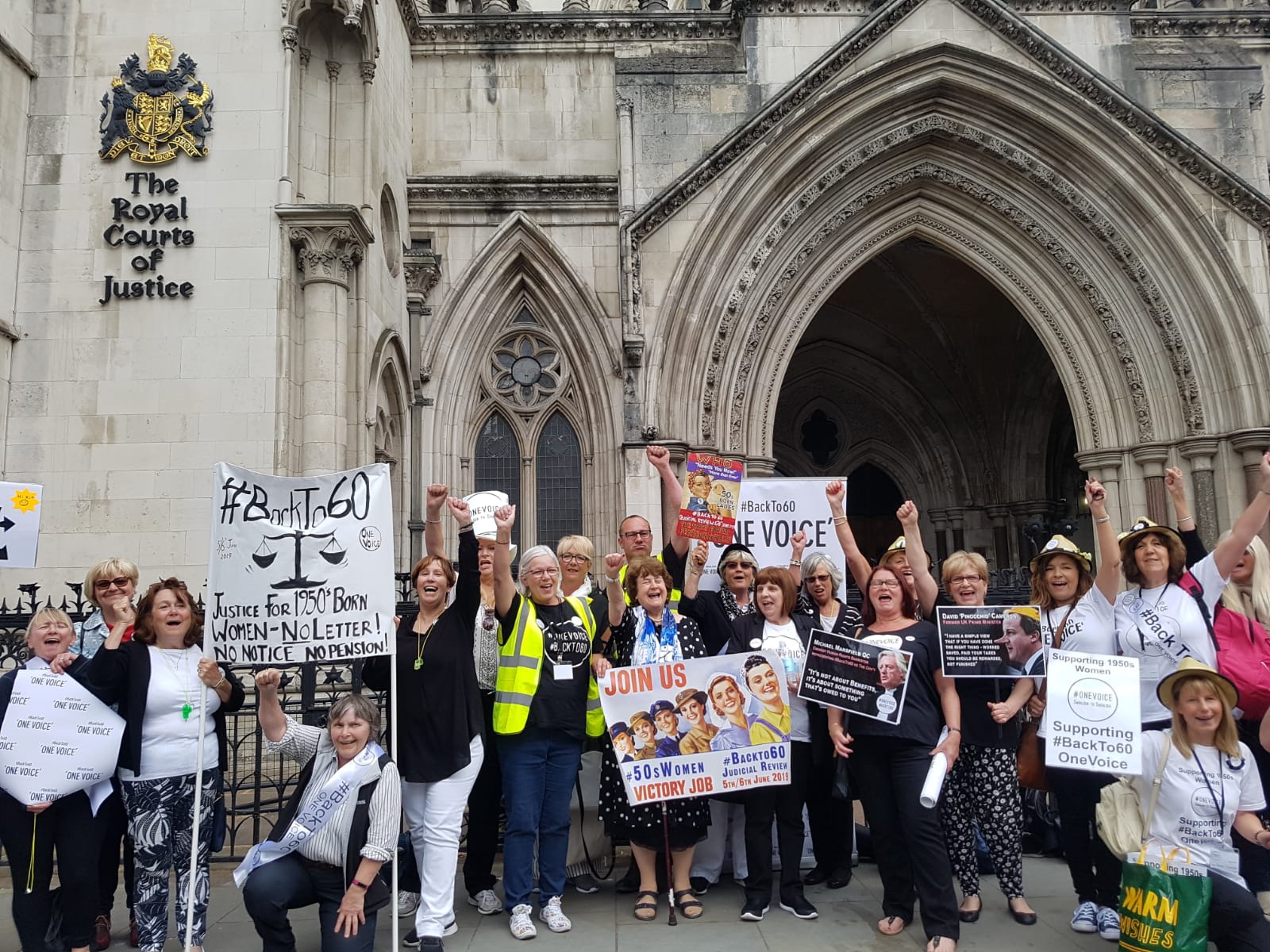A campaign group made up of women born in the 1950s has vowed to continue its fight against “discriminatory” changes to the state pension age after losing a landmark legal battle.
High Court judges last week dismissed a claim that laws intended to equalise the state pension age between men and women, which were introduced between 1995 and 2014, are unlawfully discriminatory on the basis of age and sex.
An estimated 3.8 million women are affected by these laws, and some are expected to lose more than £40,000 from their pensions, the court heard during a two-day hearing in June.
It was argued the changes worsened existing inequalities suffered by women of that generation, but judges disagreed.
However, campaign group BackTo60 – whose members brought the claim – is now considering appealing the decision, and is also increasing its lobbying efforts to force change through parliament.
“If these women were angry before, now they are incandescent,” Joanne Welch, founder and director of the group, told EachOther. “We have not given up.”
What Is The Case About?

Credit: Aaron Walawalkar /EachOther
The review was brought by claimants Julie Delve, 61, and Karen Glynn, 62, who were both due to receive their state pensions in 2018 and 2016 respectively. However, following legislative changes, they must now both wait until they are 66.
The legislation was argued to breach of Article 14 of the Human Rights Convention, which guards against discrimination on the basis of age and sex, as well as being contrary to the general principles of European Union law and the UN Convention on the Elimination of Discrimination Against Women (CEDAW).
“Although the objective was equalisation, what has happened is the reverse,” Michael Mansfield QC, who represented one of the claimants, said at the time. “We would argue that it has been the case because it has imposed upon a generation who were already suffering inequality within the workplace which led to disadvantage.”
He added: “They have pushed women already disadvantaged into the lowest percentile you can imagine. They are on the brink of survival.”
In June, 61-year-old mum-of-two Joy Scott, from Great Yarmouth, told EachOther of her fears that she may need to sell her home after being told an increase in her pensionable age from 60 to 66 means she will lose £45,000.
But James Eadie QC, representing the Department of Work and Pensions (DwP), argued there was “no causal link” between the law change and the disadvantages that the women have suffered.
“Those disadvantages, unfortunate as they were, existed before and will exist afterwards.”
Mr Eadie said the purpose of the state pension age is “not a mechanism for correcting ills by other causes.”
In a 43-page judgment, Lord Justice Irwin and Justice Whipple dismissed the case on all grounds.
It reads: “There was no direct discrimination on grounds of sex, because this legislation does not treat women less favourably than men in law. Rather it equalises a historic asymmetry between men and women and thereby corrects historic direct discrimination against men.”
It also rejected the claimants’ argument that the policy was discriminatory based on age; adding that, even if it was, “it could be justified on the facts”.
The judges did offer the concession that they were “saddened by the stories we read in the evidence lodged by the claimants”.
Nevertheless, their role as judges in this case is limited. “The wider issues raised by the claimants, about whether these choices were right or wrong or good or bad, are not for us,” the judgement added. “They are for members of the public and their elected representatives.”
What Happens Next?

Mum-of-two Mac Hawkins, 63, was told she would have to wait five extra years to receive her pension only 18 months before she turned 60. Image Credit: Aaron Walawalkar
“[The ruling] has actually worked in our favour in some respects,” Welch said, highlighting that the heads of unions Unite and Unison have both issued statements reaffirming their support of the women.
BackTo60 is calling for the government to enact a “temporary special measure” to compensate the women affected by the pension age hike. They are also asking MPs to sign an Early Day Motion to have this course of action is debated in parliament. As of Monday (7 October), the motion has gained 224 signatures, including those of former Conservative and now independent MP Nicholas Soames, and former Labour leader Ed Miliband.
Early Day Motions are tabled by MPs to be debated in the House of Commons on “an early day.” This means that there is no fixed date for them and, in practise, only a handful are ever debated.
Article 4 of CEDAW calls on governments to introduce temporary special measures – which can include a wide range of legislative, executive and other instruments – “to effect the structural, social and cultural changes necessary to correct past and current forms of discrimination against women”. Such as measure would temporarily bypass the existing pension legislation.
Welch added that Delve and Glynn are set to meet with their legal team this week to consider their options in appealing the High Court judges’ decision.
She highlighted that, with a general election looming, the 3.8 million women affected form a powerful voter base, who will hold Prime Minister Boris Johnson accountable to his pledge to “commit to doing everything I possibly can to sorting [the problem] out”.
The BackTo60 group is making a video and podcast highlighting the plight of women born in the 1950s, and is also set to launch a crowdfunding page.







